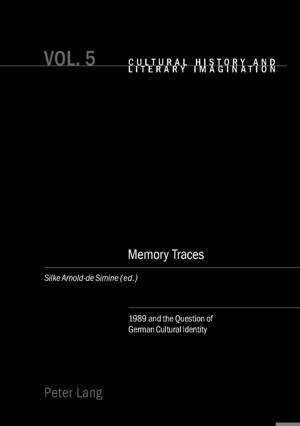
- Afhalen na 1 uur in een winkel met voorraad
- Gratis thuislevering in België vanaf € 30
- Ruim aanbod met 7 miljoen producten
- Afhalen na 1 uur in een winkel met voorraad
- Gratis thuislevering in België vanaf € 30
- Ruim aanbod met 7 miljoen producten
Zoeken
Memory Traces
1989 and the Question of German Cultural Identity
€ 105,45
+ 210 punten
Omschrijving
This essay collection examines the dynamics of memory organization and the way it varies among different media and modes of discourse in post-unification Germany. German unification has put the post-war period into a historical perspective. Such a rupture raises questions concerning the appropriate commemoration, preservation and reinterpretation of the past. The processes of reorientation after unification influenced the self-perception of literary authors as well as the social role, position and status of German literature. They also affected the way writers viewed the competition in which they found themselves pitted against visual and electronic media as rival windows on the past. In the context of several debates on German literature during the 1990s the discussion revolved not only around the adequate aesthetic representation of the historical and cultural heritage but even more so around the role of literature itself in that process.
The contributions look at different discourses that were and still are concerned with reinterpreting and creating new collective symbols and narrative patterns in relation to Germany's past. The volume focuses on the effects of the characteristic discourses of the press, literature and its different genres, film, the internet and memorials on the depiction and performance of memories.
The contributions look at different discourses that were and still are concerned with reinterpreting and creating new collective symbols and narrative patterns in relation to Germany's past. The volume focuses on the effects of the characteristic discourses of the press, literature and its different genres, film, the internet and memorials on the depiction and performance of memories.
Specificaties
Betrokkenen
- Uitgeverij:
Inhoud
- Aantal bladzijden:
- 350
- Taal:
- Engels
- Reeks:
- Reeksnummer:
- nr. 5
Eigenschappen
- Productcode (EAN):
- 9783039102976
- Verschijningsdatum:
- 28/06/2005
- Uitvoering:
- Paperback
- Formaat:
- Trade paperback (VS)
- Afmetingen:
- 150 mm x 220 mm
- Gewicht:
- 479 g

Alleen bij Standaard Boekhandel
+ 210 punten op je klantenkaart van Standaard Boekhandel
Beoordelingen
We publiceren alleen reviews die voldoen aan de voorwaarden voor reviews. Bekijk onze voorwaarden voor reviews.










